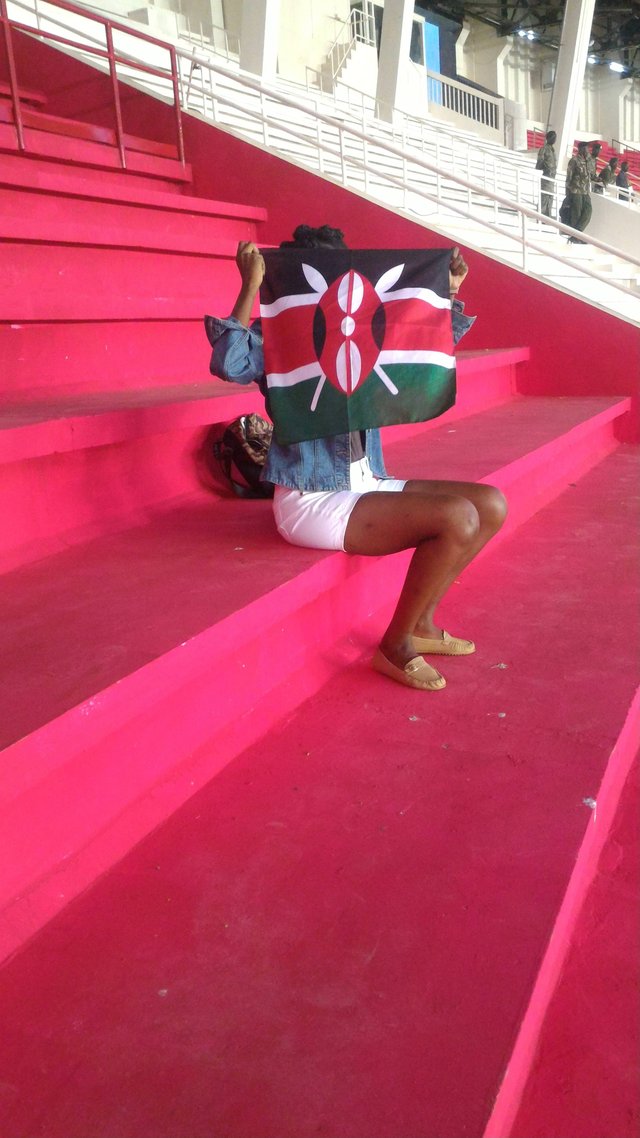Kenya is celebrating her independence. Happy Jamhuri Day! 🇰🇰💕🇰
Today is Jamhuri Day, one of Kenya’s most important national holidays. Jamhuri is Swahili for Republic. This is the day when Kenyans commemorate the day the country gained its independence from the British rule on 12th December 1963. This came after the Nation attained complete self-governance on 1st June 1963. Every year, on such a day, numerous festivities are held across the country as the people look back on the journey that has been since independence, and as they celebrate their rich cultural heritage.
Here’s a brief history on Kenya
Pre-colonial era
Cushites from North Africa moved to the East African part that is now Kenya, around 2000 BC. Owing to Kenya’s closeness to the Arabian Peninsula, a lot of Arabs frequented the region, by the 1st Century AD. This movement also led to the setting up of Persian and Arab colonies in the region. The Bantu and Nilotic people started moving into the area during the 1st millennium AD, settling inland.
The Europeans
The Swahili language was developed from a mixture of Arabic and Bantu. The language developed as a Lingua Franca for trade among the people. The Portuguese arrived at around 1498, clipping the Arab dominance to a great extent. The port of Mombasa was a very important resupply stop, especially for ships headed to the Far East. The arrival of the Portuguese was characterized by the penetration of Islam into the territory in the 1600s, under the Imam of Oman. This remained to be the case until the arrival of another group of Europeans in the 19th century, the British.
Colonial History
The foundation of the colonial history in Kenya is the Berlin Conference that was held in 1885. The decision makers divided East Africa into different regions that would then be under the rule of different Europeans. You guessed it right. Britain got Kenya. The UK government went ahead to create the East African protectorate in 1895. This was shortly followed by the opening up of the Kenyan Highlands to the settlers.
Kenya was officially declared a British colony in 1920. Even before this was done, however, the white settlers could voice their opinions in the government. This was as opposed to Africans and Asians who did not have that luxury, not until 1944. This period also saw a lot of Indians being shipped to Kenya to help with the construction of the Kenya-Uganda railway line. Most of them had their families come with them. People with Indian origin were recently named Kenya’s 45th tribe.
The Mau Mau – Resistance to Colonialism
In 1942, members of the GEMA community, i.e. Kikuyu, Embu, Kamba, and Ameru took an oath of secrecy and unity to fight against the British. That oath was the foundation of the struggle, it was the fuel that kept them motivated. I used that because no one really knows what the oath was. As has been mentioned, it was a highly secretive operation. They barely bulged even after independence was attained. The road to National Sovereignty was clouded by a lot of ups and downs, especially given the British were obviously better equipped than the locals.
In 1957, Kenyatta was charged with leading the Mau Mau, and was sentenced to 7 years in prison. Dedan Kimathi was also arrested and later hanged by the colonialists for his role in the movement. The Mau Mau rebellion led to the declaration of a state of emergency, between 1952 and 1952. Numerous detention camps were also set up to house the thousands of Kenyans that were incarcerated as a result of opposing the British rule. This period also saw an increase in the number of Africans who participated in the political process. Kenya Legislative Council was formed as a result of this persistence.
Independence Day!
1957 was the year that saw the first batch of Africans get elected to the Legislative Council. Their first order of business was to advocate for Kenyatta’s release from detention. He was released in 1962, and went ahead to become Kenya’s first Prime Minister after the country’s independence in 1963. Kenya became a republic in 1964, with Kenyatta as the President. This was also the same year Kenya became part of the British Commonwealth.
Post-Independence
A lot has happened since Kenya gained her independence. The bottom line, however, is that if resilience was a country, it would be Kenya. This is a nation that has constantly had to deal with a lot, but always dusted it off and moved on. The people are what define her, and make her what she is.
There is honestly no other country whose citizens are as patriotic as Kenyans. We even have what I like to call a banded culture. Almost everyone in Kenya wears a band beaded using the Kenyan flag. It is also a country you are certain to fall in love with should you decide to visit.
As we remember our journey as a Nation today, it is the hope for better lives for our future generations that keeps us going.
Have you been to Kenya? What did you like most? Kenyans, are you banded? Share a pic in the comments section? My band is visible on the first image 😇
Happy Jamhuri day!
An Upvote, Comment, and Resteem is sexy AF, and will really be appreciated 💕💕


Happy Jamuhuri day friend :)
I just needed another reason to go out today. Happy Jamhuri day to you too.